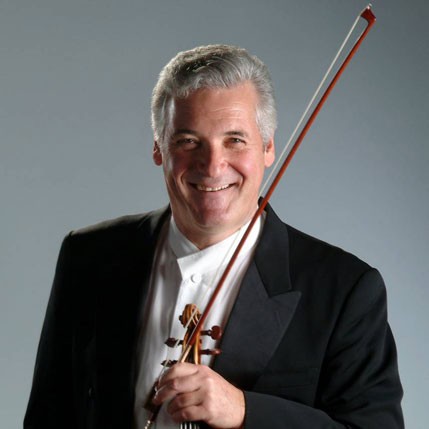Elgar fares best in uneven night with Zukerman, Royal Philharmonic

For the second time in a week, the Harris Theater is helping to plug a gap on the local concert scene by bringing a visiting orchestra to Chicago. Wednesday night it was the Royal Philharmonic Orchestra under the direction of the ensemble’s principal guest conductor, Pinchas Zukerman.
If the evening produced uneven results, it was by no means the fault of the British ensemble, which is celebrating its 70th anniversary season. Founded by Sir Thomas Beecham in 1946, the London orchestra has enjoyed an illustrious history with such notable musicians as Rufolf Kempe, Antal Dorati, Daniele Gatti and Charles Dutoit, the RPO’s present principal conductor. The orchestra’s current roster hews to the young side and boasts dark, burnished strings, solid brass and some gifted wind players.
Even so, one wished that Dutoit was leading Wednesday’s concert at the Harris Theater, which might have produced more consistent results.
Beethoven dominated the first half. Zukerman led off with the Egmont Overture in a brawny, rather lumbering and old-fashioned reading, which was well-played–a couple horn slips apart–yet lacking dramatic intensity.
In Beethoven’s Violin Concerto, Zukerman did his bivalved thing, playing the solo part and sort-of conducting. There were fleeting moments of fire from the soloist–mostly in the closing bars–and the Royal Philharmonic gave a fine account of themselves, a fruity oboe solo apart. But for the most part this was the same kind of casually relaxed approach to music-making that has come to characterize Zukerman’s violin performances.
Call him La Sonnambulo. The violinist glides unruffled and disengaged across the surface of Beethoven’s most profound concerto as if suavity is the main point of the exercise. In addition to the generalized interpretive approach, Zukerman’s playing wasn’t nearly as technically polished as usual, with repeated wayward intonation and off-center attacks, usually at the beginning of phrases. The Royal Philharmonic musicians’ glum and dispirited expressions spoke volumes.
Zukerman showed more engagement once he laid down the fiddle, leading the British orchestra in music of their most celebrated composer, with Sir Edward Elgar’s Enigma Variations.
Here, Zukerman and the musicians proved more in synch, offereing a vital and well-characterized reading. Wit and charm were still in short supply—and the heart of the work, “Nimrod,” lacked grip and emotional intensity—yet most of the portraits were energized or affectionate as needed, with inspired playing by the musicians. Among the highlights were a notably rambunctious “Troyte,” a charming “Ysobel” with lovely viola solo by Abigail Fenna, and an atmospheric penultimate variation with evocative clarinet solo by Katherine Lacy.
Repeated curtain calls brought Zukerman back out for more Elgar with an encore of the Larghetto movement from his Serenade for Strings, the musicians bringing just the right gentle wistfulness to this lovely uber-English music.
Posted in Uncategorized


